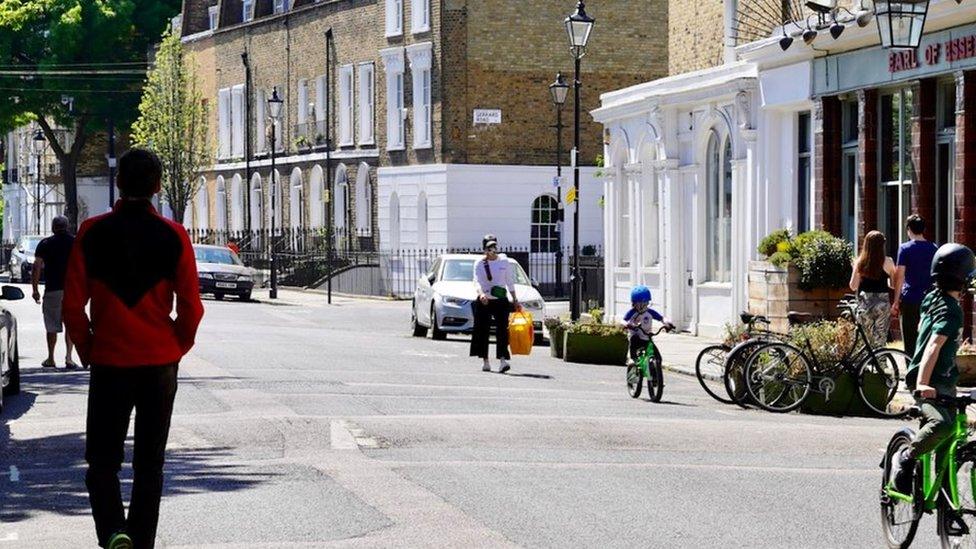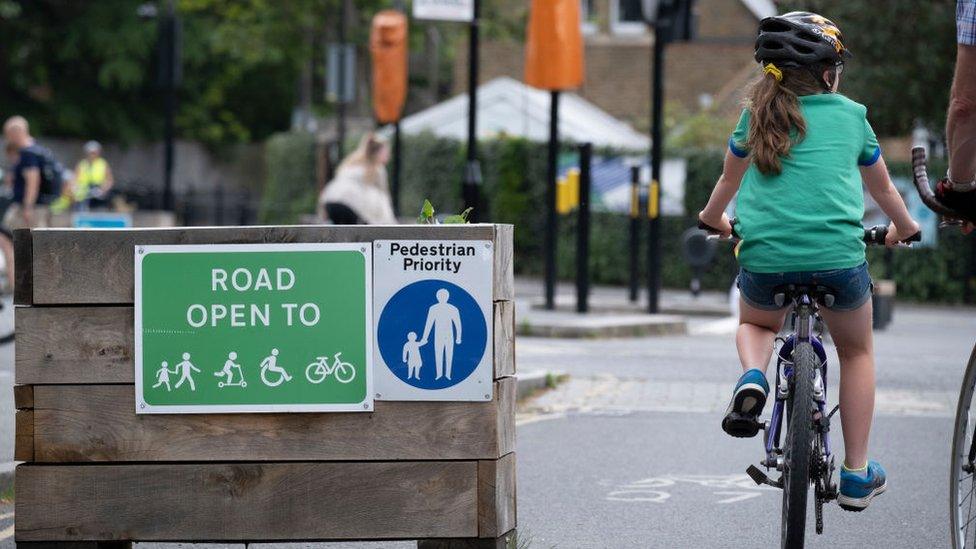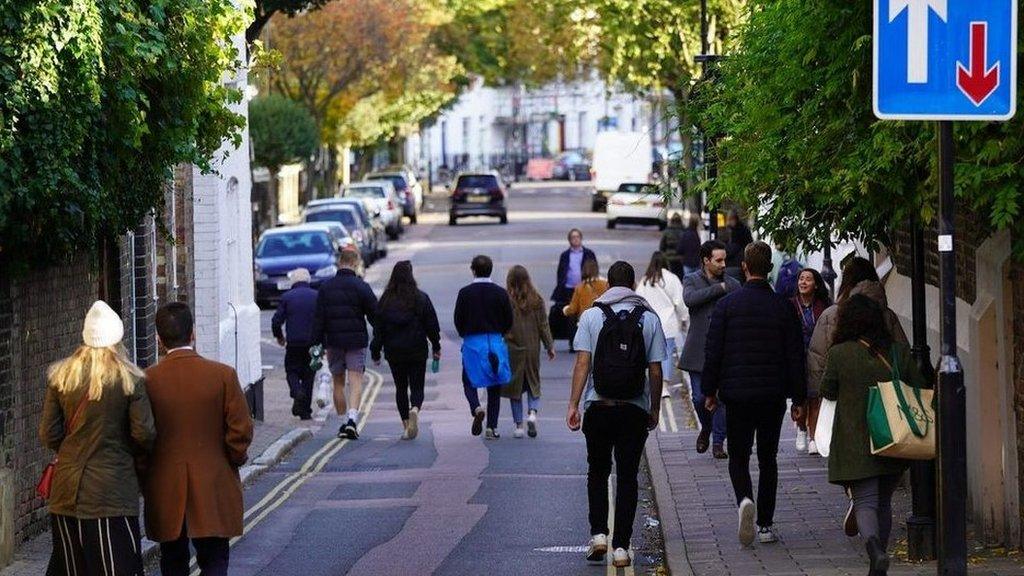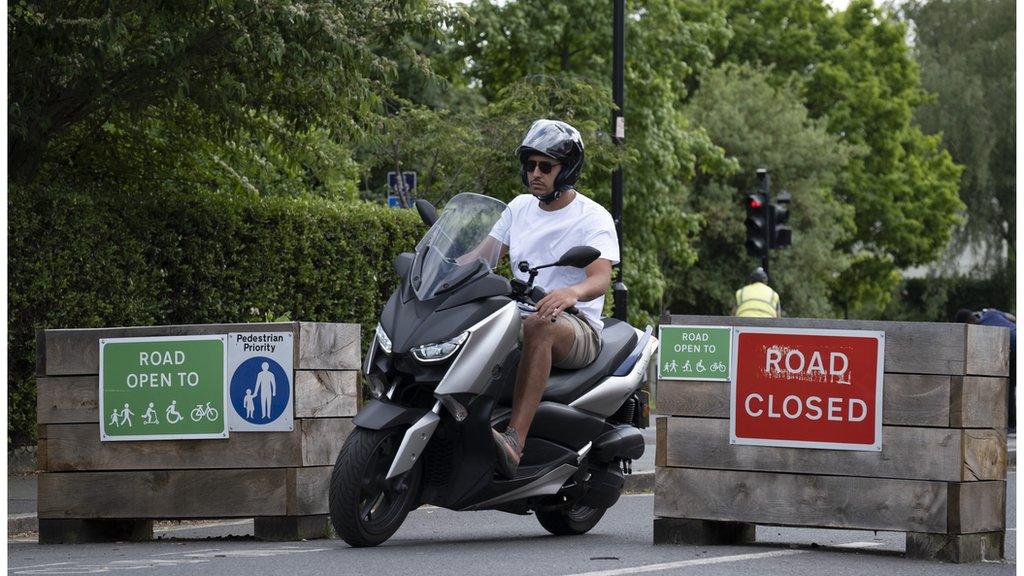Islington Council to introduce low-traffic schemes on 70% of roads
- Published

The LTNs previously installed in Islington will remain in place
A London borough is planning to impose traffic restrictions on 70% of its roads in a bid to reduce pollution.
Islington wants to introduce six more low-traffic schemes, called liveable neighbourhoods (LNs), which will work in the same way as the current low-traffic neighbourhoods (LTNs).
The restrictions will mean drivers cannot pass through designated roads, which will be pedestrianised.
The seven current Islington LTNs will also remain in place.
The proposals won council backing but remain subject to "extensive" consultation before a planned implementation in April.
The new LNs will be introduced to areas including Mildmay East, Cally, Barnsbury and Laycock and Highbury New Park.
As well traffic restrictions, these places will also get more green spaces, widened footpaths, bike parking and placemaking features.
There are exemptions for residents living within the LN area, as well as the TfL Dial-a-Ride service.
The borough currently has seven different low-traffic schemes which cover 24% of the borough, the council said.
One is the Safer Street scheme, where only residents can drive through the areas between school drop-off times.
So far the council has introduced 35 of them and aims to create more this year. As part of a long-term plan, the council has proposed to introduce School Streets for secondary schools as well.
'Haves and have-nots'
The council's plans would mean eventually about 70% of streets in the borough have low-traffic restrictions.
More than a dozen Islington residents unhappy with the plans for the new LNs attended the deciding meeting on 12 January calling for a say on the proposals, according to the Local Democracy Reporting Service.
One resident, Rebekah Kelly, said: "People-friendly streets have created haves and have-nots, fit against disabled, rich against poor."
"We want to be able to vote for these streets and LTNs or not at all," another resident told the council leader, who responded that it had been included in last year's election manifesto.
Rowena Champion, cabinet member for the environment, said: "We know that we simply cannot afford to stand still - Islington remains one of the six London boroughs most susceptible to climate change, and air pollution is still a major public health emergency.
"Our ambition to create a more equal Islington is at the heart of everything we do, and we look forward to seeing the positive impact that these changes bring to people across our borough."

Follow BBC London on Facebook, external, Twitter , externaland Instagram, external. Send your story ideas to hellobbclondon@bbc.co.uk, external
- Published26 April 2022

- Published24 November 2022

- Published11 July 2022
